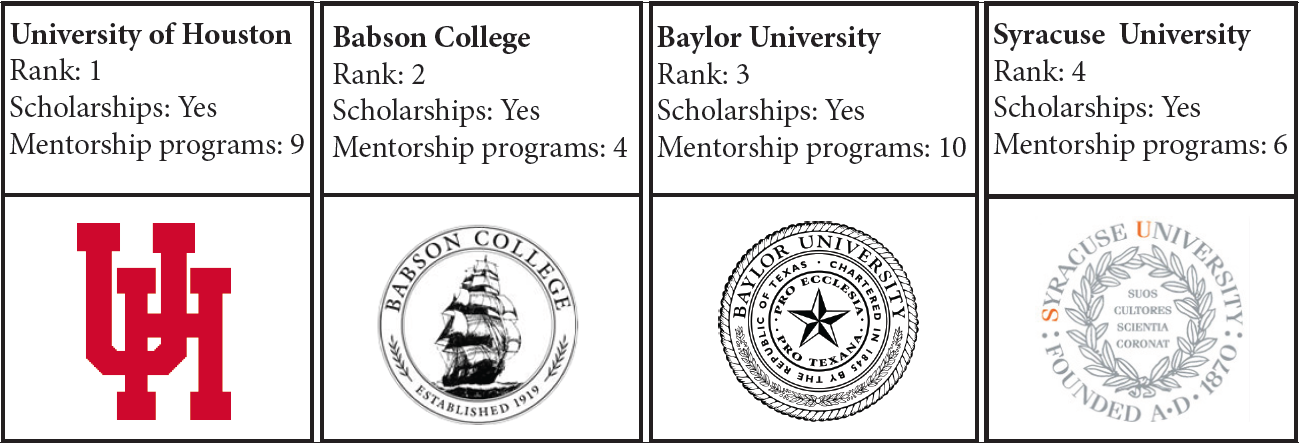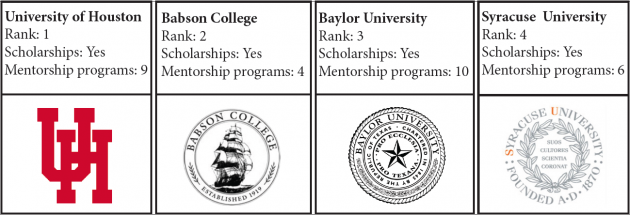

Ashley Ohriner | News Editor
By Jade Mardirosian
Staff Writer
The Hankamer School of Business’ undergraduate entrepreneurship program has been ranked No. 3 in the nation, down one spot from last year, in a survey done by The Princeton Review for Entrepreneur Magazine.
The survey ranked the top 25 undergraduate entrepreneurship programs in the country, taking into account, among other things, percentage of the student body enrolled in the program, percentage of students with successful start-up businesses and number of scholarships available for students in the program.
Dr. Les Palich, assistant director of the entrepreneurship studies program, said the program, which was first offered as a major in 1977, has a long tradition, great faculty and students who have a particular inclination for studying entrepreneurship.
Dr. Steve Bradley, assistant professor of management and entrepreneurship also said the program offers a mixture of things that make it uniquely strong.
“We have a strong curriculum and support mechanisms that are fairly unique, like the entrepreneurship living-learning center— a strong internship program that allows students to gain real-world experience and travel opportunities where students are going on trips and seeing businesses in European and developing countries,” Bradley said. “I think this combination makes Baylor a really strong program compared to other universities.”
Palich explained that the program is constantly changing and evolving in order to stay up-to-date and help students better prepare for starting their own businesses one day.
An example of the program evolving to keep up with new trends is the social entrepreneurship and economic development course Bradley teaches.
This course is designed to teach students about businesses that try to solve needs for the poor, which is a growing trend.
“The trend, even among the developing community, which would include large government organizations, seems to be establishing more sustainable businesses that allow regular income for the poor as opposed to just government-sponsored programs,” Bradley said.
Palich said the repeated high rankings offer a number of benefits for the program, including great exposure for future and current students.
“We just had a $2 million donation to the program, and the donor, who wants to remain anonymous, said, ‘You are No. 2, No. 3, always up toward the top of the rankings. We want Baylor to be No. 1, so we are providing this funding to make that happen,’” Palich said.
Bradley says high rankings offer exposure to future and current students.
“One of our goals is the get some of the top students interested in business at Baylor to be in the entrepreneurship program as opposed to other programs, and with these rankings we attract better students,” Bradley said. “[High rankings] provide us more visibility, which helps students get jobs or attract more funding for students to start their own businesses.”





